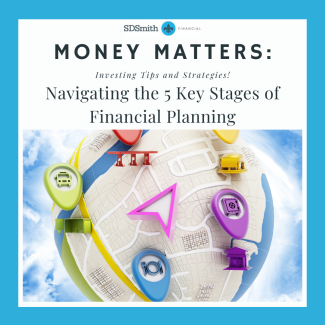
Navigating the 5 Key Stages of Financial Planning
Financial planning can feel overwhelming, but it doesn’t have to be. Understanding the stage you’re in is crucial for making smart investment decisions and securing your future. Let’s dive into the five essential stages of financial planning and how you can make the most of each one.
1. Budgeting: Laying the Foundation
Whether you’re just entering the workforce or looking to get your finances in order, budgeting is the first step. For young professionals in their 20s, fresh out of college or trade school, it can be challenging to figure out financial priorities. The biggest hurdle? Crushing debt. Homeownership, one of the greatest wealth builders, is becoming harder for younger generations. Student loans, car loans, and credit card debt can add up to $80,000, making it tough to buy a home. Prioritize paying off high-interest debt (anything over 8%) early to pave the way to financial freedom.
2. Asset Accumulation: Building Your Wealth
This is the stage where you spend most of your time. The goal here is to create future flexibility. Avoid common mistakes like neglecting retirement accounts, skipping life insurance, and being too conservative with long-term investments. Understand the tax implications of different retirement accounts to maximize your savings. Smart investing now means more options later.
3. Retirement Planning: Getting Ready for the Next Chapter
Retirement planning typically begins around the ages 50 to 60. You’ve been diligently contributing to your 401K, maybe the kids have moved out, and you’re earning more than ever. Key milestones include starting catch-up contributions at 50, avoiding early withdrawal penalties after 59 ½, choosing when to begin Social Security benefits (between 62 and 70), and enrolling in Medicare at 65. This stage is where a financial advisor can make a big difference, helping you navigate the complexities of retirement planning.
4. Retirement: Enjoying the Fruits of Your Labor
Transitioning into retirement can be a big adjustment. You move from earning a paycheck to managing your savings. A well-thought-out plan from the retirement planning stage will ensure you don’t outlive your assets. Focus on creating a reliable income stream and an effective tax strategy. Explore different income options to find the best fit for you and your family.
5. Estate Planning: Securing Your Legacy
Five to ten years into retirement, it’s time to think about estate planning. You’ve got a plan that works for you, and now it’s about making sure your wishes are honored. Depending on your situation, you might need a simple will and a few Transfer on Death deeds, or a comprehensive trust. Setting up a power of attorney is also crucial. Consult with an estate planning attorney to tailor the best plan for you.
Where Are You on Your Financial Journey? No matter your stage, having a clear plan is key. Need help? Set up a consultation today and take control of your financial future!

